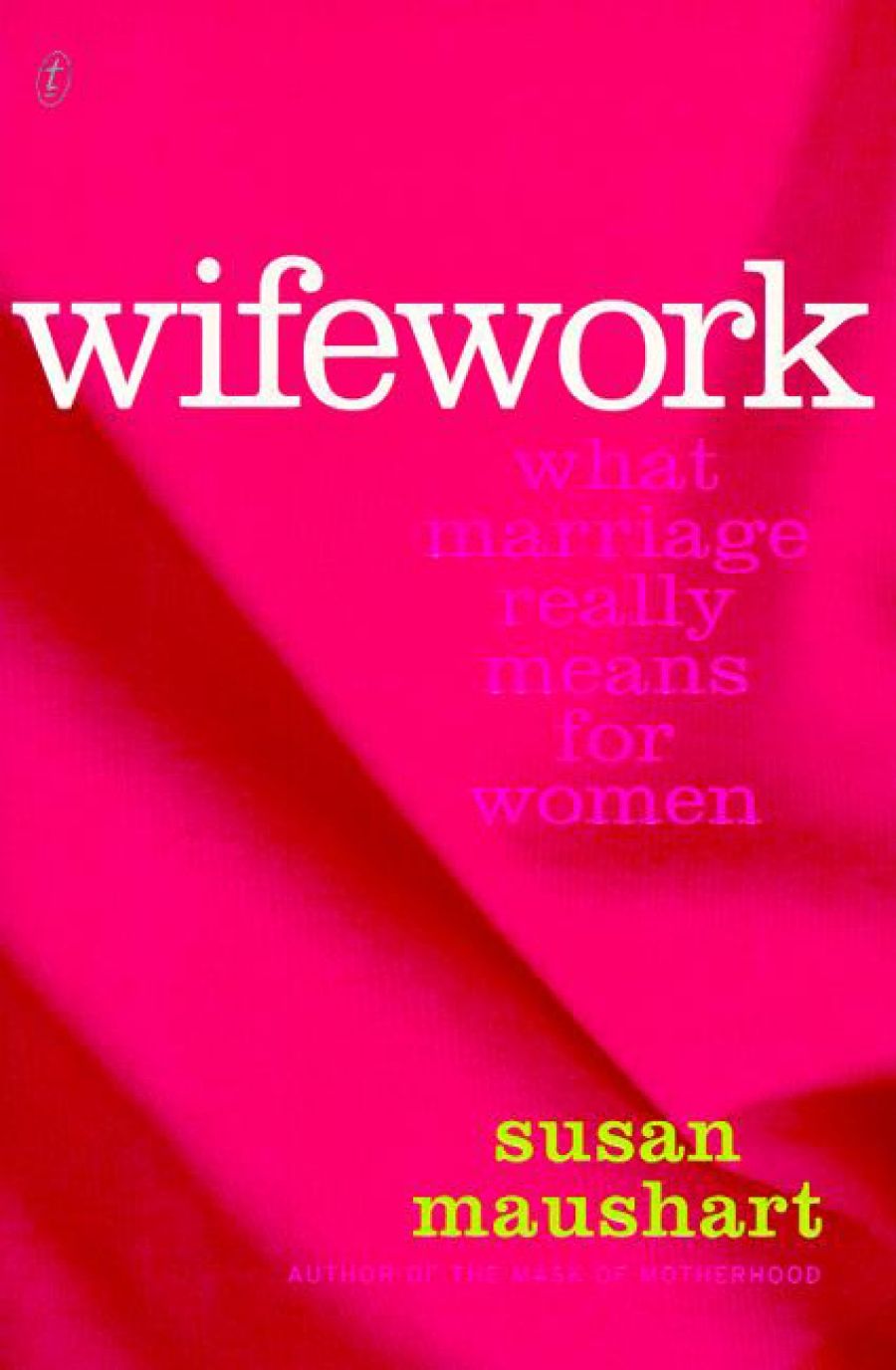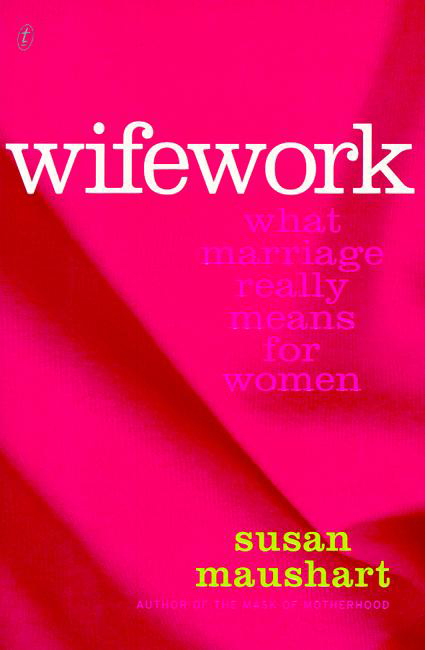
- Free Article: No
- Contents Category: Feminism
- Review Article: Yes
- Article Title: Second Nature
- Online Only: No
- Custom Highlight Text:
Wifework is a good term for the things that women have been doing in Western marriages for centuries. It evokes all those other phrases coined in the 1970s and 1980s by feminists that resonate in the consciousness of modern women (including many of those who preface any discussion of family life with the mantra ‘I’m not a feminist’). Wifework embraces the sacrifice of ‘the burnt chop syndrome’, the exhaustion of the ‘the double shift’ and the psychological burden of ‘emotional labour’. The title of this new book raises hopes for a spirited discussion examining and updating earlier complaints, showing how things have changed and suggesting what needs to be done about marriages in the new century. As a been-there-done-that reader (married in the 1970s and feeling guilty about letting down feminism by doing so, divorced in the 1980s and feeling guilty about that, cohabiting and parenting in the 1990s), I was interested at once.
- Book 1 Title: Wifework
- Book 1 Subtitle: What marriage really means for women
- Book 1 Biblio: Text, $27.50 pb, 269 pp
- Book 1 Cover Small (400 x 600):

- Book 1 Cover (800 x 1200):

The book certainly examines complaints. Maushart argues that wifework covers a range of tasks (most of the physical work inside the house, most of the childcare, most of the caring for and comforting of husband and children) frequently unreciprocated and added to paid work. There is no equivalent term to cover what husbands have been expected to do, because husbands are expected to do much less within marriage. This imbalance means that women are now both discontented with marriage, and more able (because they are more integrated into the world of paid work) to manage without husbands. Hence the findings from several studies that women are more likely than men to end marriages, and to feel that they are right in doing so. These arguments about modern marriage are bolstered by summaries of research. While the interpretation is sometimes a little broad, on the whole the summaries are crisp and usually sensible, and some of the one-liners are good value.
There is an attempt to explain how the situation came about. It relies on an evolutionary argument: marriage evolved as a result of the need for men to know their offspring and for women to be protected during the period of childbearing. This sounds oddly like sociobiology, and would not have appealed to earlier feminist analysts. While that isn’t ground to reject the attempt, I can’t see why it was necessary to invoke biology in any form to explain wifework. The learned habits of ‘second nature’ going back four or five generations can explain wifework as easily as the idea of ‘biological nature’. A detailed history of Western marriage in the twentieth century might have been more illuminating than a sketchy biological anthropology of all socially sanctioned heterosexual relationships assumed to include procreation.
Of more interest than the attempt to explain how marriage ended up as wifework rather than ‘partnerwork’ are the comments on what to do. Maushart argues that we need to change marriage to save it. We need to change and save marriage because single parenthood, divorce and cohabitation are all bad for children. Again, this is a view that would not have been shared by many earlier feminists, though it has been gaining ground in today’s more conservative climate. It deserves more exploration. Why would a feminist feel that marriage is better of itself for children than other states? At the moment, two parents are better than one economically, socially and emotionally for families where there is no violence or other cause of great unhappiness, and, yes, some figures suggest that cohabiting is less secure than marrying for kids. But you can’t argue that marriage, as formalised cohabitation, is the cause by itself of security for children. It is possible that the apparently better outcomes for the children of married parents reflect the social and economic arrangements (for example, wage relativities between masculine and feminine occupations, the deeply rooted stigma attached to divorce) that made marriage necessary for so many women in the first place. We undoubtedly need to work at changing marriage, but is that our only option? Maushart seems to be saying that it is, for the sake of children. I’d like to know more about why she feels this way.
This reaction is partly guilt, of course. I’m cohabiting; does this mean I’m endangering my child? Good feminist writers often raise hackles because they make you wonder about your own life. The book also contains quite a lot of material from Maushart’s life, so she clearly believes in the feminist tradition of personal stories. Older feminists will find this approach sympathetic, but the stories sometimes sound as though they were lifted from the author’s humorous columns in The Australian newspaper. They offer a quick comment, raise an occasional chuckle, but don’t really enhance our understanding in the way that the passionate autobiographical revelations of earlier writers sometimes did. Those earlier feminists were less worried than Maushart has reportedly been about the label of man-hater. And in some cases (for example, Germaine Greer’s extraordinary account, both vituperative and understanding, of her parent’s marriage in Daddy, We Hardly Knew You), their fervour offered more insight into the problems of heterosexual partnering than this book does, at least for ageing feminist cohabiters.


Comments powered by CComment